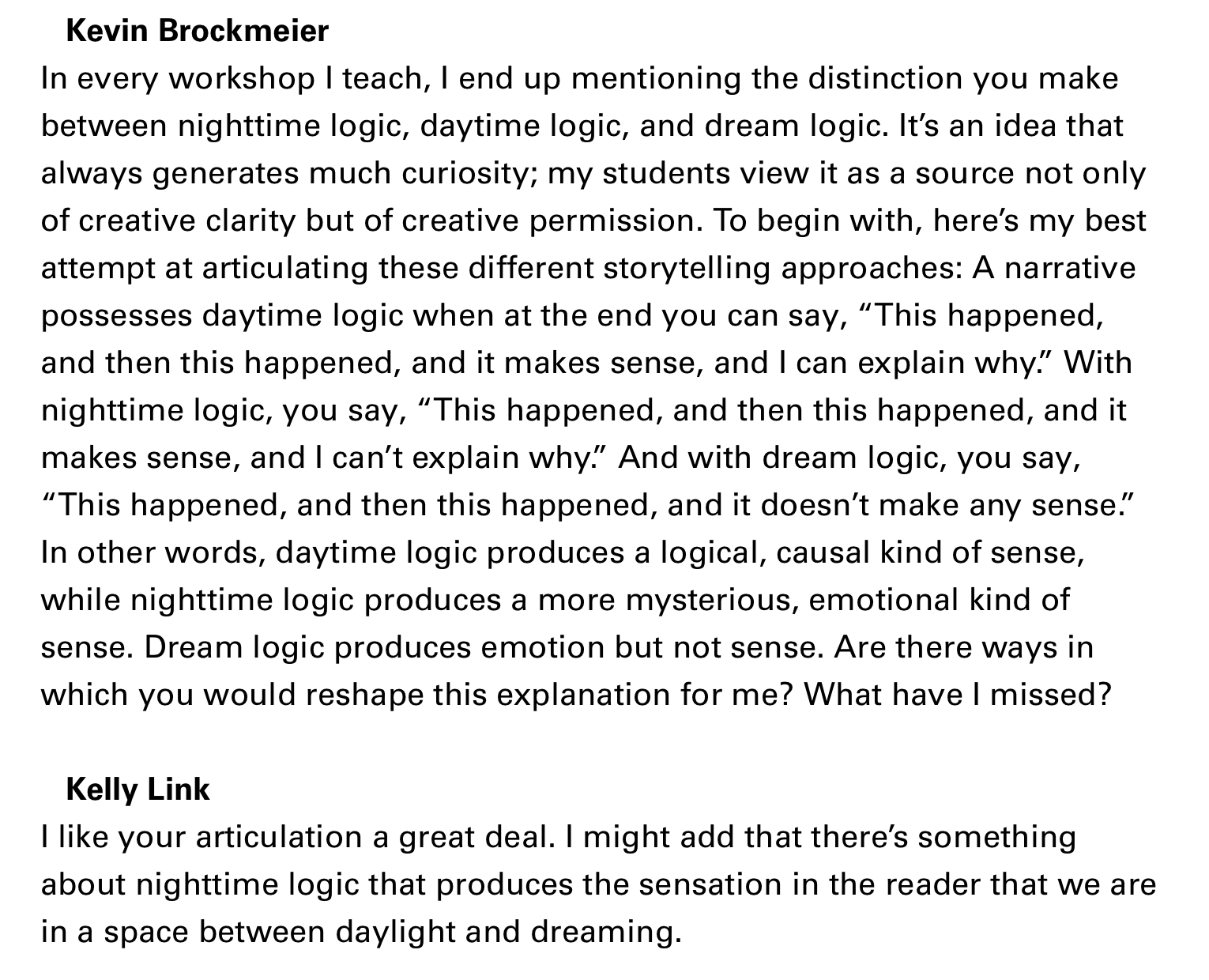was in the mood for more Kelly Link and landed on an interview ( https://bombmagazine.org/articles/2023/12/15/kelly-link-kevin-brockmeier/ ) instead. it starts off strong talking about this fun idea of nighttime logic, daytime logic, and dream logic, then they compare book lists fitting each.
warning: it’s pretty dangerous if you have a growing-the-to-read-pile-habbit, I picked up three of the books in their lists.
